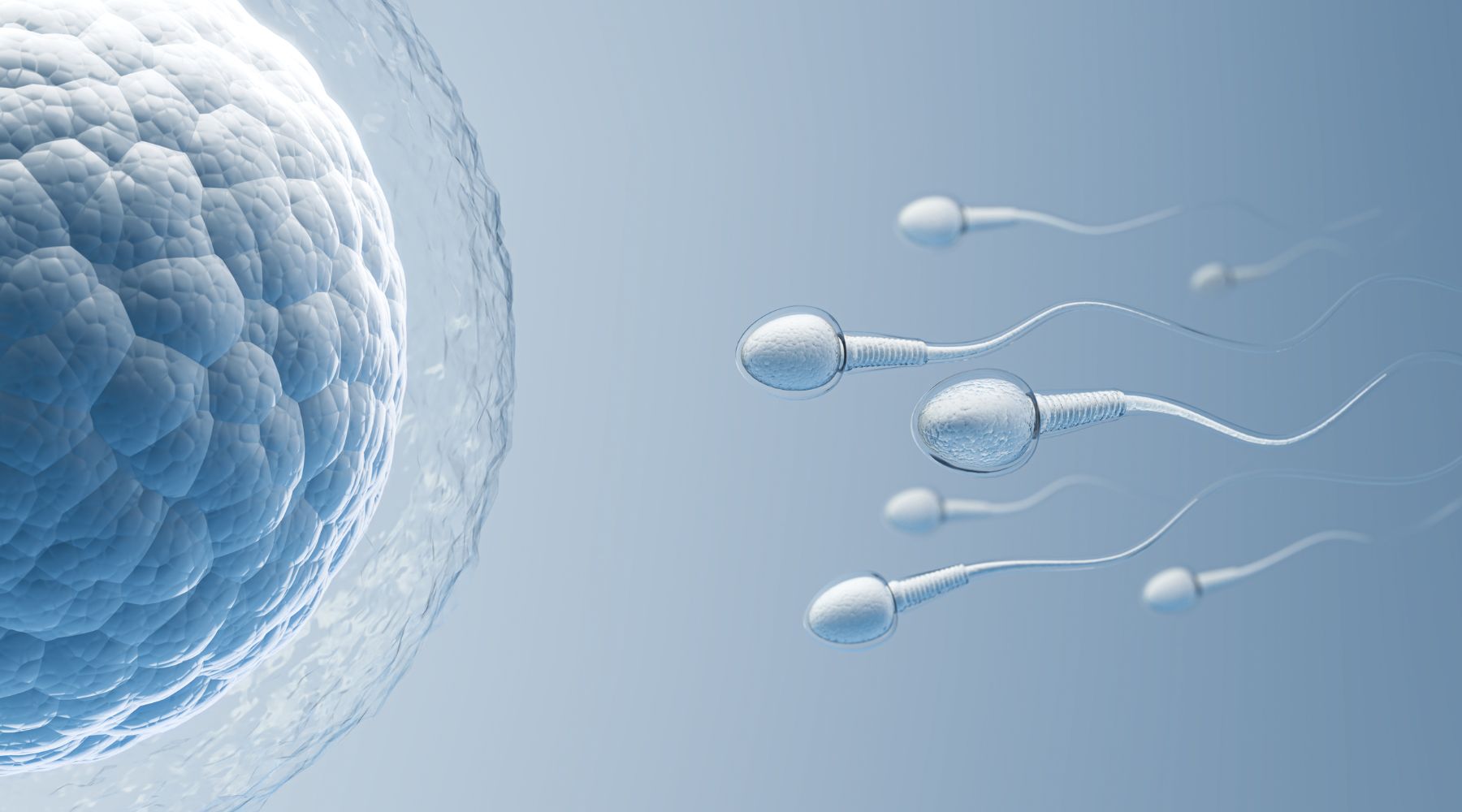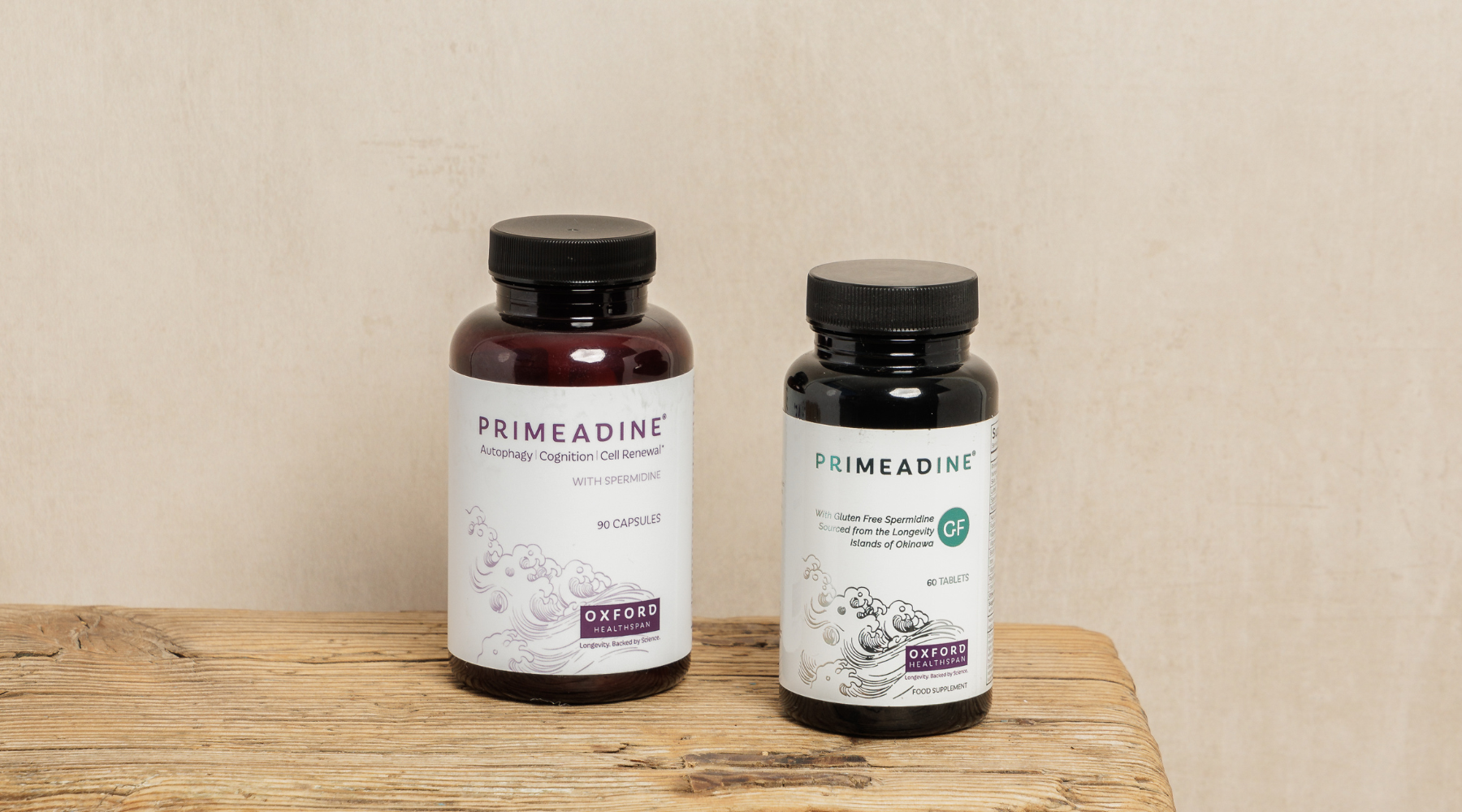Menopause is a significant milestone in a woman's life, often accompanied by challenging symptoms due to hormonal changes. However, there's no need to simply endure this transition. I myself have already gone through the menopause, so I'd like to share some evidence-based strategies I found useful in navigating it and preventing it from ruling my life!
Lifestyle Interventions for Menopause
Cold & Hot Therapy
Cold Water Therapy:
Cold water exposure, such as brief cold showers, offers unexpected benefits for menopausal women. This practice activates brown fat through thermogenesis (a metabolic process through which the body burns calories to produce heat), helping manage body temperature and reduce hot flashes. It also stimulates the release of norepinephrine (an important neurotransmitter and hormone that prepares the body and brain for action), potentially reducing inflammation and improving mood [1, 2].
If you're intrigued, start small. Try a short burst of cold water at the end of your shower and gradually increase the duration to up to 1 minute. You might be surprised at how invigorating it feels!
Pro tip: Let the water hit the back of your neck to stimulate your vagus nerve, which is the main nerve in your parasympathetic nervous system aka your "rest and digest" system.
Infrared Sauna:
Infrared sauna offers gentle, soothing heat that supports circulation, detoxification, and relaxation. Alternating between hot and cold can help regulate your body’s thermostat, ease hot flashes, and leave you feeling invigorated. I use Sunlighten's sauna a couple of times a week!
Beauty bonus: A brief cold water spritz on your head increases hair glossiness and the heat from the sauna will work to improve facial skin tone.
Strength Training: Your Ally in Menopause
Strength training is a powerful tool during menopause. It helps maintain bone density and muscle mass, which naturally decline as estrogen levels decrease. The mechanical stress from lifting weights stimulates bone-forming cells, helping to counteract bone loss.
Strength training also promotes the release of growth hormone and IGF-1, supporting muscle repair and growth. These hormones also improve insulin sensitivity and fat metabolism - areas that can become challenging during menopause [3].
Aim for 2-3 strength training sessions per week. Remember, strong bodies are healthy bodies!
Kaatsu Bands for Low Impact Muscle Maintenace
KAATSU blood flow restriction training offers a gentle yet effective solution for women experiencing menopausal changes, particularly in addressing muscle loss (sarcopenia) and bone density concerns. This innovative approach – originating in Japan – uses comfortable air bands that safely modify blood flow in the limbs, allowing women to maintain or build strength using low-intensity exercises - making it particularly suitable for those with limited mobility or ongoing pain.
Research shows that KAATSU can be as effective as traditional high-intensity resistance training in improving muscle strength and bone formation markers, but with less risk of injury [4]. The bands can be used during everyday activities, making it a convenient option for busy women, while helping to kickstart hormonal responses and improve blood circulation that may be affected during menopause.
Importantly, this method has been scientifically validated for postmenopausal women, showing improvements in muscle strength, balance, and bone health markers.
I use my bands from KAATSU daily (see picture)!

Bioidentical Hormone Replacement Therapy: A Personalised Approach
For those who did not have a good experience with HRT or don't want to take it for various reasons, Bioidentical Hormone Replacement Therapy (BHRT) might be worth exploring. BHRT uses hormones chemically identical to those our bodies produce naturally and offers a personalised approach as your healthcare provider can tailor the hormone regimen to your specific needs [5].
However, it's crucial to discuss this option thoroughly with a qualified professional and remember, there is no one size fits all - what works for me will not work for everyone. Shout out to British GP, Dr. Louise Newson, who has lots of essential information on menopause and different treatment options on her website.
If you don't want to use HRT or BHRT due to concerns around estrogen dominance, you can also supplement with hormones like DHEA and pregnenolone as an alternative.
Cool Down for Better Sleep
Hot flashes are one of the worst menopause symptoms, and we all know how vital good sleep is for our health and well-being. A cool room also promotes better sleep quality - somewhere between 16-18 degrees Celsius (61-64 degrees Fahrenheit) is the sweet spot [6]. If you're struggling with hot flashes or you just tend to run hot at night, consider investing in cooling technologies like a ChiliPad, which was a major help during my menopausal transition!
Nutrients for Menopause
Eating a healthy, balanced diet rich in protein, fruit and veg, and healthy fats is crucial for supporting your menopausal journey. There are certain nutrients you might need an extra boost of, including food-derived spermidine, magnesium, vitamin D3 (+ K2), and creatine.
Food-derived Spermidine: Supporting Cellular Health
Spermidine, a naturally-occurring compound, has been gaining attention for its potential benefits during menopause. Its primary effect is triggering autophagy - our body's process for clearing out cellular debris and regenerating new, healthy components.
Our ability to trigger autophagy declines with age, slowing down several cellular processes and contributing to the signs and symptoms of aging (and consequently, menopause), such as poor quality sleep, thinning, graying hair, brain fog, and reduced memory and cognition.
It is also proven to reduce the stress hormone, cortisol, and increase the hormones that keep you youthful, fertile, and full of energy - progesterone, estradiol, DHEA, and pregnenolone for women, and testosterone for men - spermidine is a crucial tool for hormonal equilibrium. A recent study also dubbed it “ground-breaking” for the world of fertility, showing it to improve egg quality in older mice [7].
By using a tool like spermidine to activate autophagy again, many of these symptoms may dissipate. Many of our clients have reported improved cognitive function, reduced brain fog, deeper, sounder sleep (especially when taken in the evening!), thicker, glossier hair, radiant, glowing skin, and more stable moods when taking Primeadine plant-derived spermidine supplements. It has also won several awards in Menopause and 40+ categories. See our awards here.
If you've never tried Primeadine, you can get 15% off your first order with the discount code NEWPRIME15 (not valid on subscriptions, which provide up to 20% off).
Spermidine is found naturally in a variety of plant-based and fermented foods. Some of the richest dietary sources include wheat germ, soybeans, mature (aged) cheeses, mushrooms, green peas, and fermented foods like natto (fermented soybeans) and miso. You’ll also find smaller amounts in broccoli, cauliflower, mango, and whole grains.
Boost Your Magnesium Intake
Magnesium is crucial for sleep, mood regulation, and bone health, and many of us don't get enough of it due to soil depletion. Unfortunately, levels also decrease with menopause so it becomes even more important to increase your intake [8].
Consider taking a 200 mg dose of magnesium glycinate before bed (I love Nutri Advanced MegaMag Powder) - the recommended daily allowance (RDA) is around 270 mg for women. You can also increase your magnesium intake through diet.
Good food sources include dark leafy greens, nuts, avocados, oily fish, and 80% dark chocolate, or raw cacao.
The Vital Role of Vitamin D
Let's not forget about the sunshine vitamin! Vitamin D becomes even more crucial during menopause. As our estrogen levels dip, we become more prone to vitamin D deficiency, which can make menopausal symptoms feel even more challenging. It is worth noting that you are also already at higher risk of a vitamin D deficiency if you have dark skin, especially if you live somewhere on the Northern Hemisphere. Other things that impact our vitamin D uptake include sunscreen and spending a lot of time indoors.
Keeping your vitamin D levels in check is like giving your bones a protective shield. It helps reduce the risk of osteoporosis, which becomes a real concern for us postmenopausal women. But that's not all - some studies hint that vitamin D might be a secret weapon against those pesky mood swings and hot flashes [9].
While soaking up some sunshine when it's out and enjoying vitamin D-rich foods like fatty fish and egg yolks can help, many of us might benefit from a supplement. I personally like the Nutri Advanced Vitamin D3 with K2 drops, which you can find here.
Selenium for Thyroid Health
Selenium is an essential trace mineral that plays a crucial role in maintaining thyroid health, particularly during menopause as these hormonal fluctuations can impact thyroid function. Adequate selenium intake supports the production and conversion of thyroid hormones, specifically helping convert the inactive thyroxine (T4) to the active triiodothyronine (T3).
Selenium also possesses antioxidant properties that can help reduce oxidative stress and inflammation, both of which can negatively effect thyroid health. Studies indicate that selenium supplementation may help lower thyroid antibody levels in women (like me!) with autoimmune thyroid conditions, such as Hashimoto's thyroiditis [10].
Pro tip: You can get your daily dose of selenium by eating just 3 Brazil nuts a day!
MCT for Brain Health & Craving Curbing
MCT, or medium-chain triglycerides, offer several potential benefits for brain health, especially during menopause. These fats are rapidly metabolized by the body and can be converted into ketones, which serve as an alternative energy source for the brain. This is particularly beneficial as hormonal changes during menopause can sometimes result in brain fog, memory issues, and reduced cognitive function.
Some studies suggest that MCTs may help enhance memory and focus, providing a quick energy boost for cognitive function, while others have explored its potential in helping with Alzheimer's Disease [11, 12]. They can also cross the blood-brain barrier, supplying instant fuel to the brain, which may help with mood regulation and overall mental clarity during menopause.
As someone who practices low-scale intermittent fasting, this also supports me in the morning before I break my fast. I personally like to add Davinia Taylor's WillPowders MCT oil to my morning coffee!
Creatine for Muscle Recovery, Bone Strength & Brain Health
Creatine isn’t just for gym-goers or body builders, it’s a powerhouse nutrient that can make a real difference for women in midlife and beyond. During menopause, our estrogen levels drop, and with that comes a natural decline in muscle mass, bone strength, and sometimes even mental sharpness. Creatine helps to counteract that.
It supports your muscles by improving energy production at the cellular level, giving you more strength, better workout recovery, and even helping maintain lean muscle, which is key for metabolism and healthy ageing. But what many people don’t realise is that creatine also benefits the brain. It helps your neurons produce and use energy more efficiently, supporting memory, focus, and mood — all of which can feel a little off during the menopausal transition.
Think of creatine as a simple, evidence-based way to support both your body and brain through this new chapter. I recently came across Mike Mutzel's Myxocience CreaPure Creatine at Copenhagen Health Week and the quality is superior!
In terms of food sources, creatine is found naturally in animal-based foods, particularly meat and fish. The richest sources include beef, pork, chicken, salmon, tuna, and herring, all of which provide creatine that the body can use directly to support muscle energy and strength. Because creatine is primarily found in animal products, vegetarians and vegans often have lower levels and may benefit from supplementation.
Conclusion
Navigating menopause doesn't have to be a struggle. With these evidence-based strategies, we can approach this new phase of life with confidence and optimism. From the invigorating effects of cold showers to the empowering practice of strength training, these approaches offer a comprehensive toolkit for managing menopausal symptoms.
Remember, every woman's journey through menopause is unique. It's important to listen to your body and consult with your healthcare provider before making significant changes to your health regimen, especially when considering hormone therapy or new supplements.
By taking a proactive and informed approach, we can work towards achieving hormonal balance and overall well-being during menopause. Here's to embracing this new chapter of our lives!
References
- Ravussin Y, Xiao C, Gavrilova O, Reitman ML. Effect of intermittent cold exposure on brown fat activation, obesity, and energy homeostasis in mice. PLoS One. 2014;9(1):e85876. Published 2014 Jan 17. doi:10.1371/journal.pone.0085876
- Women's Health and Menopause Center. (2024). "The Startling Benefits of Swimming in Cold Water During Menopause." Available at: https://www.whmcenter.com/the-startling-benefits-of-swimming-in-cold-water-during-menopause/
- Viña, J., et al. (2023). "The Efficacy of Strength Exercises for Reducing the Symptoms of Menopause: A Systematic Review." International Journal of Environmental Research and Public Health, 20(3), p.2280. Available at: https://pubmed.ncbi.nlm.nih.gov/36675477/
- Linero C, Choi SJ. Effect of blood flow restriction during low-intensity resistance training on bone markers and physical functions in postmenopausal women. J Exerc Sci Fit. 2021;19(1):57-65. doi:10.1016/j.jesf.2020.09.001
- Plano Women's Healthcare. (2024). "The Advantages of Bioidentical Hormones." Available at: https://planowomenshealthcare.com/the-advantages-of-bioidentical-hormones/
- Patient.info. (2023). "What's the right temperature for sleep?" Available at: https://patient.info/news-and-features/whats-the-right-temperature-for-sleep
- Zimmermann, A., & Madeo, F. (2023). Spermidine promotes fertility in aged female mice. Nature Aging, 3(11), 1317-1319. https://doi.org/10.1038/s43587-023-00495-x
- National Institutes of Health. (2024). "Magnesium: Fact Sheet for Health Professionals." Available at: https://ods.od.nih.gov/factsheets/Magnesium-HealthProfessional/
- Li, M., et al. (2023). The role of vitamin D in menopausal women's health. Frontiers in Endocrinology, 14. Available at: https://www.ncbi.nlm.nih.gov/pmc/articles/PMC10291614/
- Huwiler VV, Maissen-Abgottspon S, Stanga Z, et al. Selenium Supplementation in Patients with Hashimoto Thyroiditis: A Systematic Review and Meta-Analysis of Randomized Clinical Trials. Thyroid. 2024;34(3):295-313. doi:10.1089/thy.2023.0556. Available at: https://pmc.ncbi.nlm.nih.gov/articles/PMC10951571/
- Shcherbakova, K., Schwarz, A., Ivleva, I., Nikitina, V., Krytskaya, D., Apryatin, S., Karpenko, M., & Trofimov, A. (2023). Short- and long-term cognitive and metabolic effects of medium-chain triglyceride supplementation in rats. Heliyon, 9(2), e13446. https://doi.org/10.1016/j.heliyon.2023.e13446. https://www.sciencedirect.com/science/article/pii/S2405844023006539
- Sun L, Ye KX, Wong HLK, et al. The Effects of Medium Chain Triglyceride for Alzheimer's Disease Related Cognitive Impairment: A Systematic Review and Meta-Analysis. J Alzheimers Dis. 2023;94(2):441-456. doi:10.3233/JAD-230406. Available at: https://pmc.ncbi.nlm.nih.gov/articles/PMC10357178/





Leave a comment
All comments are moderated before being published.
This site is protected by hCaptcha and the hCaptcha Privacy Policy and Terms of Service apply.